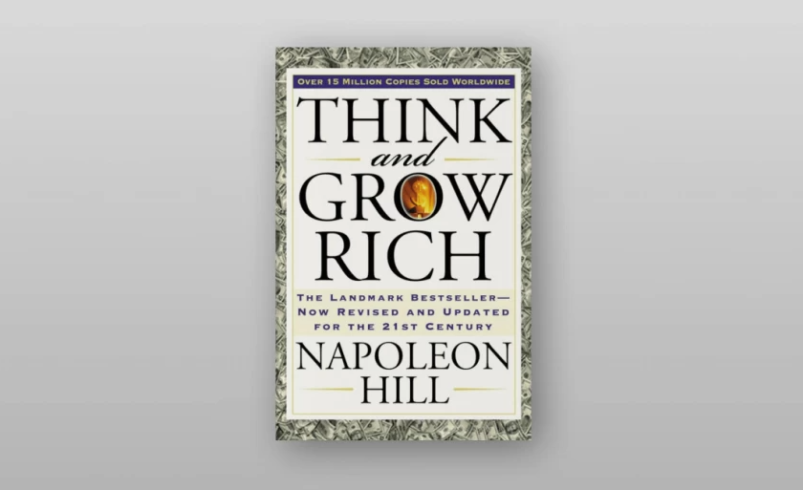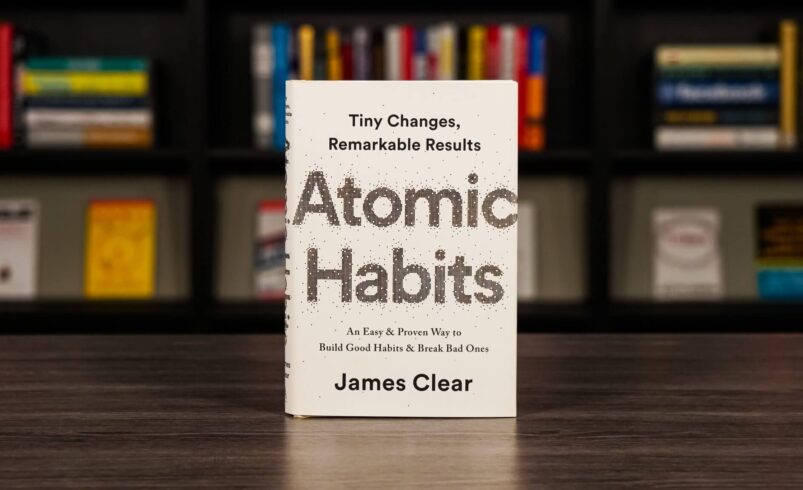
Think and Grow Rich, written by Napoleon Hill, states that by focusing on a passionate desire, having faith in oneself, training the subconscious to believe in success, and developing a detailed plan, anyone can grow rich.
Napoleon Hill researched more than forty millionaires to find out what made them the men that they were and wrote this book. Your thoughts are the seeds of your destiny. He argues that cultivating a positive mental attitude, setting clear goals, and taking relentless action can lead to unparalleled success.
Napoleon Hill defines several attributes of leaders: a pleasing personality, unwavering courage, self-control, a keen sense of justice, imagination, definiteness of decision and plans, sympathy and understanding, mastery of detail, and a willingness to assume ownership and responsibility.
Here are some books to try out if you enjoyed reading Think and Grow Rich:
Contents [show]
Influence: the psychology of persuasion
This book explores the psychology behind persuasion and how to defend ourselves against manipulative tactics.
Influence, the classic book on persuasion, explains the psychology of why people say “yes”—and how to apply these understandings. This book will help you expand your network and increase sales.
The Millionaire Next Door
The Millionaire Next Door, written by Thomas J. Stanley and William D. Danko, was first published in 1996 and has since become a popular and influential book on wealth and personal finance.
This book argues that anyone can become a millionaire by adopting the habits and behaviors of self-made millionaires, such as frugality, smart financial management, and investing in stocks and real estate.
How to Win Friends and Influence People
How to Win Friends and Influence People, written by Dale Carnegie, is a goldmine of information about the human psyche and how we think, feel, and react to each other while conversing. If you want to learn what people want, this book will help you.
Dale Carnegie outlines a number of principles of communication that still ring true even today, despite how aggressively communication has changed since 1936. Humans are a social species, and we are strongest when we establish strong, favorable connections with other people.
The Richest Man in Babylon
The Richest Man in Babylon, written by George S. Clason, is a fascinating lesson in personal finance written in short, easy-to-digest stories. It was first published in 1926, but the classic parable style and timeless concepts about how to build wealth continue to provide value as if it were written today.
The book is set in ancient Babylon and follows the story of Arkad, the richest man in all of Babylon, imparting his wisdom to a younger man, Bansir, who wishes to become wealthy. The book uses stories of characters from Babylon to illustrate the importance of our relationship with money and the basic principles for acquiring, keeping, and earning money.
Rich dad, poor dad
Rich Dad, Poor Dad, written by Robert Kiyosaki, is a personal finance book that emphasizes the importance of financial education, teaches how to make money work for you, and challenges traditional beliefs about money.

In the book, Kiyosaki shares the history of taxes and how the tax system was originally meant to penalize the rich but ended up penalizing the poor and middle class. The rich can outsmart the tax system; they’ve learned how money works and used their brains, time, and resources to change things in their favor.
The 7 Habits of Highly Effective People
This book, written by Stephen R. Covey, offers powerful principles for personal and professional development with practical guidance to cultivate positive habits and achieve meaningful success.
The 7 Habits of Highly Effective People is a proven individual effectiveness operating system. Participants develop increased maturity, greater productivity, and the ability to manage themselves.
The Power of Your Subconscious Mind
The Power of Your Subconscious Mind by Dr. Joseph Murphy explores the vast potential of the human mind. He argues that the subconscious mind is incredibly powerful and can be harnessed to create positive change in our lives.
Through our thoughts and beliefs, we can program our subconscious mind to attract what we desire, whether it be success, happiness, or good health. By understanding how the subconscious mind works, we can learn to control our thoughts and use the power of our thoughts to create the life we want.
Secrets of the Millionaire Mind
Secrets of the Millionaire Mind by T. Harv Eker sets out to explain the difference between the “mindset of success” and the “mindset of scarcity.” He does this by sharing his own story of growing up in poverty and eventually becoming a self-made millionaires
This book can help you change your relationship with money. Based on his research, he identified 17 “wealth files” that are common among wealthy people, which include things like having a positive relationship with money, taking risks, and being disciplined with spending.
Get access to the full summary of these books, as well as many others, on the Wizdom app.
Download now:
https://play.google.com/store/apps/details?id=com.learn.wizdom










